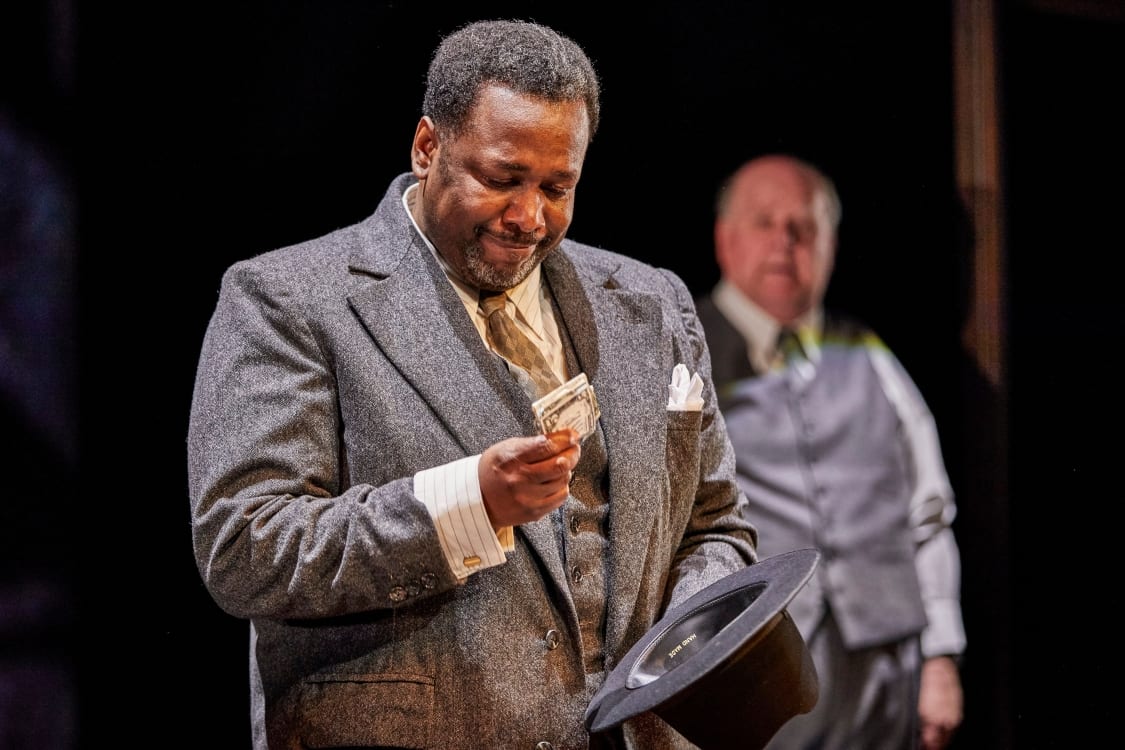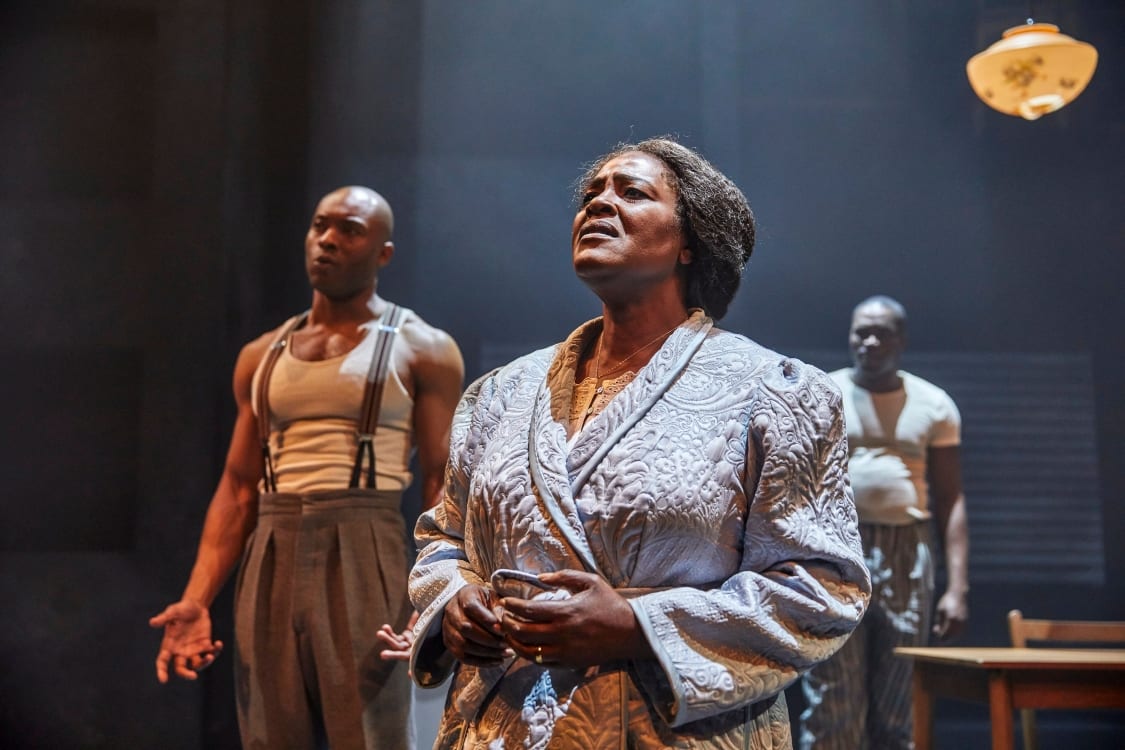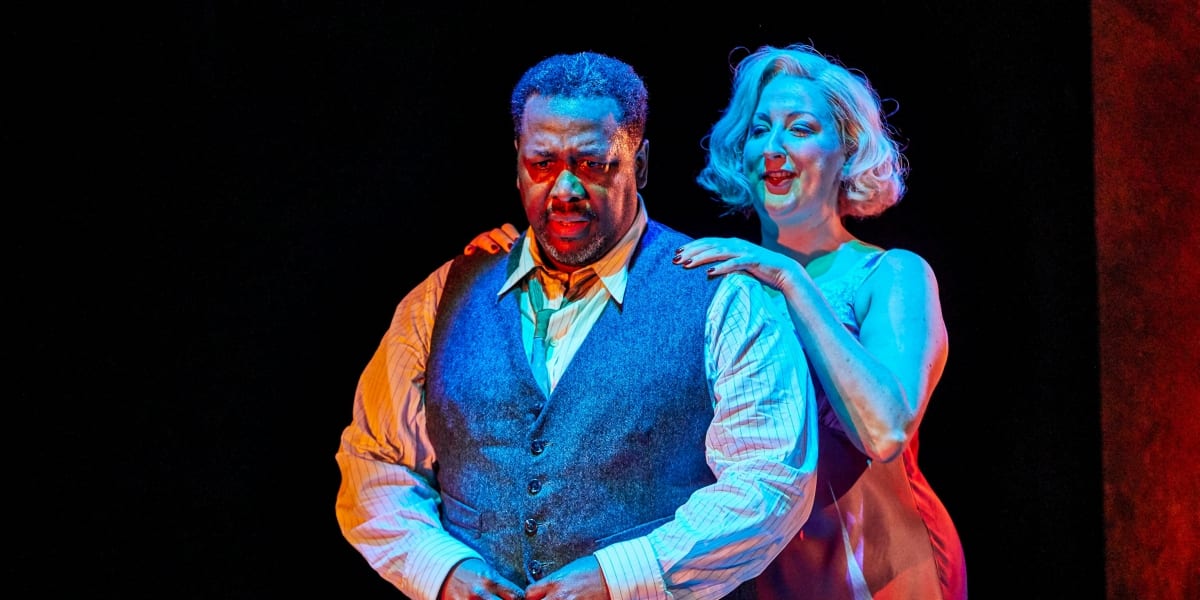Arthur Miller’s classic American play, focusing on the harshness of living in a dog-eat-dog capitalist society, receives fresh treatment from Elliot and Cromwell. The Loman family are black African-American, living in the racially charged America of the late 1940s. The plight of fatigued door-to-door salesman Willy Loman, who desperately tries to manufacture his own success during the Gilded Age, seems more poignant with this introduction of a racial dynamic.
Wendell Pierce deftly performs the part Willy in Death of a Salesman. The psychodrama of this struggling businessman is laid bare on the stage: Willy is plagued by hallucinations, surfacing memories of past transgressions, financial fears and concern for the mediocre careers of his two boys. Pierce plays Willy as a Lear-like fool; he is imperious in his flights of rage yet pathetically clownish in his nervous breakdowns.

Death of a Salesman entertains the theme of self-invention and re-invention. The opportunity to become a self-made man and the potential to fade into obscurity balance on a knife-edge: Willy fears that his sons Biff (Arinzé Kene) and Happy (Martins Imhangbe) are falling towards the latter; Willy pins his hope for obtaining a vicarious sense of achievement onto them. But they all have to make their way in a world dominated by white men like callous Howard (Matthew Seadon-Young). Kene, tapping into deep emotional reserves, conveys the anguish his character feels while cracking under the immense pressure of his father’s expectations.
In this society, a man’s worth is defined by the calibre of his possessions. Willy’s profession was becoming antiquated even at that time – his breadwinning ability is practically non-existent and his home reflects this. Sharon D. Clarke, playing his wife Linda, really shows how this character whitewashes domestic woes for the sake of keeping up appearances. Linda comes from a place of love and devotion: she doesn’t want people to worry about the crumbling state of the house and its various modern appliances; we get to see all that internalised concern explode out when she berates her children for disrespecting Willy. Clarke expertly portrays Linda as the quiet and considerate heroine of the play.
The notion of success eats away at Willy’s mind. Willy’s brother Ben (Joseph Mydell) comes to him in a series of visions and provides cryptic commentary about how to become rich. In this production of Death of a Salesman there’s a fascinating interplay between what is real and not real. Ben can be talking right next to Willy, but the other characters are oblivious to his phantom presence – it all works to display the mental fracturing Willy is experiencing in his quest for wealth.

Ben, the fatal will-o-wisp of the play, coaxes Willy to pay an ultimate price to help his children. Portly, slow and irritable – Willy has never been the image of success, or even acted in a compassionate way, but in feeling like a nobody he represents everybody. Haunted by laughter, thrashing about in the dark of the ‘jungle’ and losing his mind – Willy exits life on his own gruesome terms. Times have changed around him: skyscrapers tower above him and technology confounds him; he seemed like a thing of the past even when he was alive.
Charley (Trevor Cooper) eulogises beautifully, saying “He’s man way out there in the blue, riding on a smile and a shoe shine. And when they start not smiling back — that’s an earthquake.” In the competing accounts of Willy’s life the characters offer, this feels to me like the perfect comment on the hopefulness and despair that characterised him, eventually driving him to the drastic action; it’s an action symptomatic of prevailing modern fears about money and identity.

